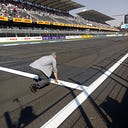After picking the gold, you know one of the other boxes is empty, so you can forget about it. So there are three slots for the remaining two coins. That's your odds: 2:3. Is that so hard?
Before, they own two ties between them, afterwards they own two ties between. If they really have no way of knowing which is more expensive, then obviously the expectancy is zero gain for both. (Indeed , it's irrelevant by what rule one ends up with both.) But people often bet on a hunch, i.e. they believe they have better knowledge.
The random walk related to infinite series -- their convergence or none convergence. When the series converges, you've "gotten home"; when it doesn't you haven't. The final quote is correct because he uses the word "may", since stumble-flying home is not an impossibility, only that the longer that luck is postponed the MUCH less likely it becomes. This is true for the 2D case, too, but MUCH less so.
